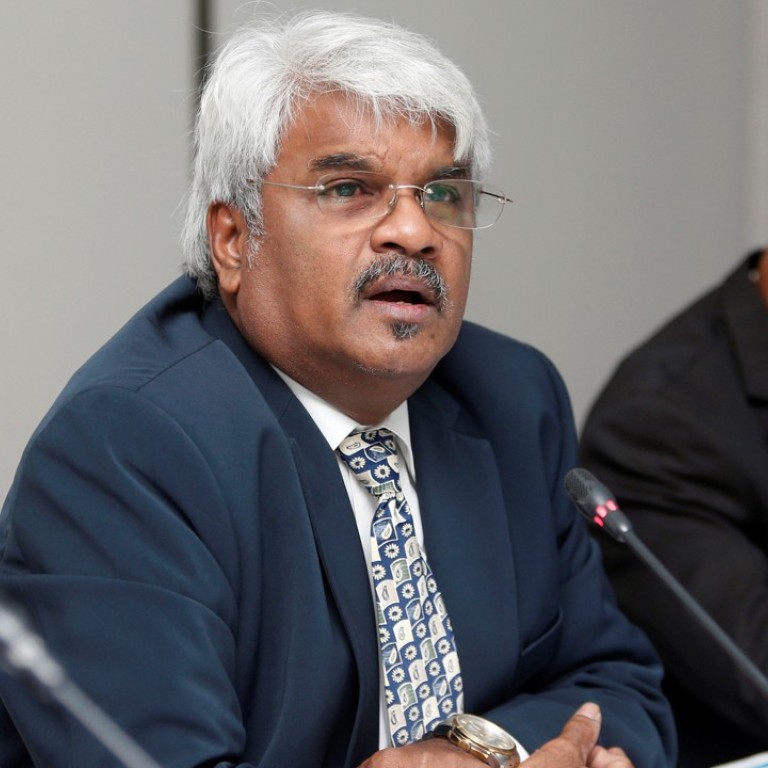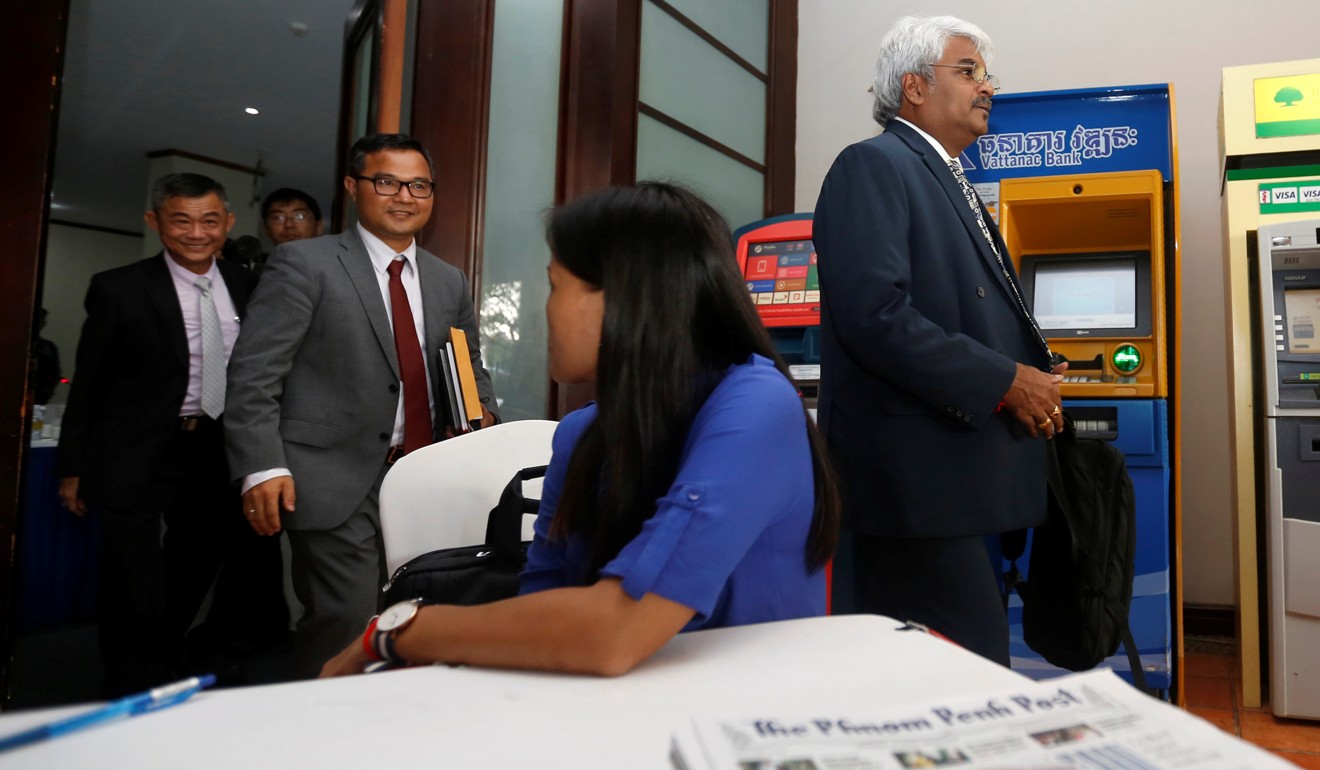
New owner of Phnom Penh Post denies Cambodian government launched crackdown on independent press
The Malaysian businessman refused to reveal the price of the sale of the newspaper or how a US$3.9 million tax bill was settled as part of the purchase
The new Malaysian owner of one of Cambodia’s major newspapers has brushed off suggestions of a far-reaching media crackdown and vehemently denied links to Prime Minister Hun Sen, who has ruled for 33 years, as concerns about the country’s press freedom deepen.
In a fiery press conference in the capital Phnom Penh on Friday, Malaysian businessman Siva Kumar Ganapathy blasted former Phnom Penh Post journalists as “careless, malicious and defamatory” in their reporting of his purchase of the Post from Australian mining magnate Bill Clough.
He referred to a report about the purchase that was published on May 6 – a day after the April 11 sale was announced. Kay Kimsong, the editor-in-chief, was fired the day after the report appeared in print.
I am a journalist by training and discipline, I am a bit confused by why journalists today … should be critical?
The Post’s story detailed links between Ganapathy’s public relations firm, AsiaPR, and Hun Sen during the early stages of his rise to power. The company’s website also said it engaged in “covert PR”.
After the owner demanded the story be removed from the Post’s website – it was later replaced with a different version on a separate topic – all foreign journalists and editors on May 7-8 walked out of the paper, leaving an entirely Cambodian editorial team.
“I cannot allow journalists who manufacture news to be a part of a highly esteemed media organisation such as the Phnom Penh Post and as journalists, they will have to be responsible and accountable for their actions,” Ganapathy said.
Asked if there had been a crackdown on media in Cambodia, Ganapathy said it was “new to me” and “I cannot say that”.
Insisting on his own journalistic credentials – dating from the 1970s to the late 2000s, for both independent and Malaysian state-backed newspapers – Ganapathy said the job of a reporter was to state facts but not to criticise.
He noted: “I am a journalist by training and discipline, I am a bit confused by why journalists today … should be critical? Our job is to report the facts.”
Asked explicitly whether a journalist’s job was to be critical, Ganapathy said: “No … to be constructive.”

The Post was established in 1992 as the country’s first independent English daily after decades of conflict. Clough had owned the newspaper since 2008. Before the sale to Ganapathy, the newspaper faced a US$3.9 million tax bill – a financial burden that was settled with the transaction.
The Malaysian businessman and his consultant, Cambodian Investment Management chairman Anthony Galliano, refused to reveal the price of the sale or the details surrounding the tax bill’s settlement.
These developments at the Post coincide with mounting challenges to Cambodia’s independent press and a government crackdown on dissent.
The main opposition, the Cambodia National Rescue Party, has been dissolved and its leader jailed. The government also used a US$6 million tax bill to force the closure of The Cambodia Daily, along with several other independent media outlets, ahead of July’s election.
The crackdown has been widely criticised by foreign governments and the UN as threatening freedom of expression.
There was no government involvement, I don’t know what you mean by government
In a statement released last month, Rhona Smith, an expert appointed by the UN Human Rights Council to monitor Cambodia, said the country’s media must be allowed to scrutinise and criticise, as well as inform the public.
The Post’s former editor-in-chief Chad Williams challenged the Malaysian’s comments, saying the paper’s future as a leading independent voice was in question.
“I don’t really think concerns about the Post’s future as a truly independent media outlet were alleviated in any way by today’s press conference,” Williams said. “When someone tells a roomful of reporters with a straight face that there’s no media crackdown in Cambodia, it suggests either a severe lack of due diligence or spectacular cynicism.”
Despite the grim future confronting independent media in Cambodia, Ganapathy insisted the paper had a future but declined to say exactly how, apart from “rationalising”, streamlining” and restructuring”.
“It was an opportune time, an opportune product, then we went for it,” he said, denying the Cambodian prime minister or government was involved in the transaction. “There was no government involvement, I don’t know what you mean by government. This is primarily an entrepreneurial decision.”


